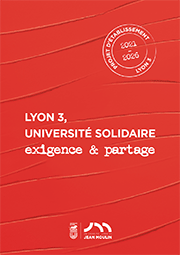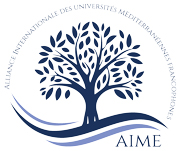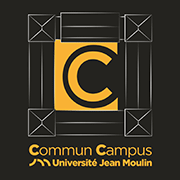AccueilRechercheProgrammes et productions scientifiquesThèsesThèses soutenuesThèses soutenues - 2006-2021Thèses soutenues - 2010
-
Partager cette page
- Recherche,
MURBACH Mathias
Les pouvoirs d'investigation en droit fran?ais. Essai d'une théorie générale.
Publié le 3 février 2011 – Mis à jour le 3 février 2011
Thèse en Droit - Droit pénal et sciences criminelles. Soutenue le 10 novembre 2010
Essai d'une théorie générale des pouvoirs d'investigation en deux temps. Tout d'abord une conceptualisation de la notion de pouvoir d'investigation par une définition de l'objet, de la finalité et du motif du pouvoir d'investigation. Cette conceptualisation s'accompagne d'un ancrage de la notion en Droit public pour les raisons suivantes : sa nature juridique est celle d'une prérogative de puissance publique et elle est exercée dans le cadre d'une mission
de service public administratif. Ensuite, une exploration des pouvoirs d'investigation en droit fran?ais. Celle-ci se décompose en deux étapes. La première consiste en une exploration par la classification des différents titres existants selon une typologie développée dans l'ouvrage et une classification selon les différents critères que l'on retrouve dans la structure des pouvoirs d'investigation. La seconde, consiste en une exploration au
sein de la classification permettant de tirer des conclusions micro juridiques sur la pertinence de certains pouvoirs d'investigation et des conclusions macro juridiques venant compléter l'essai de théorie générale. L'ouvrage s'accompagne d'un tome d'annexe recensant 2.000 pouvoirs d'investigation existants en droit positif fran?ais et classés selon les critères développés dans la thèse.
Essay on a general theory of invesgative powers in 2 parts. First part as a conceptualization of the notion of invesgative power through a definition of the phrase, its goal and its motives. This conceptualization will anchor the notion in Public Law for the following reasons : its legal nature is one of public authorities and it applies in a mission of administrative public utilities. Then, a thorough examination of the invesgative powers in French Law. This one will be developed in two steps. The first one is a thorough examination thanks to a classification of the different criteria to be found in the structure of the invesgative powers. The second one consists of a thorough examination of the classication, thus allowing to draw micro legal conclusions on the relevance of specific invesgative powers and macro legal conclusions in order to complete the essay on the general theory. The work goes with a volume of appendixes listing 2.000 invesgative powers in actual French Law and classified with the criteria developed through the essay.
Mots clés : INVESTIGATION, ENQUETE, CONTRAINTE, LIBERTES PUBLIQUES, PREROGATIVE DE PUISSANCE PUBLIQUE, STRUCTURE DES POUVOIRS, ORGANISATION, ORDRE PUBLIC
Key-words :
INVESTIGATION, SURVEY, CONSTRAINT, PUBLIC LIBERTY, PUBLIC AUTHORITIES, STRUCTURE OF INVESTIGATIVE POWERS, ORGANIZATION, PUBLIC ORDER
Directeur de thèse : Jacques BUISSON
Membres du jury :
Yves MAYAUD, Professeur, Université Panthéon-Assas, Paris II
Philippe BONFILS, Professeur, Université Paul Cézanne, Aix-Marseille III
Jacques BUISSON, Professeur, Université Jean Moulin Lyon 3
Jean-Jacques CHEVALLIER, Professeur émérite, Université de Rennes 1
Jean UNTERMAIER, Professeur, Université Jean Moulin Lyon 3
André VARINARD, Professeur émérite, Université Jean Moulin Lyon 3
Mention : Très honorable avec les félicitations du jury
Equipe d'accueil : Centre de droit pénal
de service public administratif. Ensuite, une exploration des pouvoirs d'investigation en droit fran?ais. Celle-ci se décompose en deux étapes. La première consiste en une exploration par la classification des différents titres existants selon une typologie développée dans l'ouvrage et une classification selon les différents critères que l'on retrouve dans la structure des pouvoirs d'investigation. La seconde, consiste en une exploration au
sein de la classification permettant de tirer des conclusions micro juridiques sur la pertinence de certains pouvoirs d'investigation et des conclusions macro juridiques venant compléter l'essai de théorie générale. L'ouvrage s'accompagne d'un tome d'annexe recensant 2.000 pouvoirs d'investigation existants en droit positif fran?ais et classés selon les critères développés dans la thèse.
Essay on a general theory of invesgative powers in 2 parts. First part as a conceptualization of the notion of invesgative power through a definition of the phrase, its goal and its motives. This conceptualization will anchor the notion in Public Law for the following reasons : its legal nature is one of public authorities and it applies in a mission of administrative public utilities. Then, a thorough examination of the invesgative powers in French Law. This one will be developed in two steps. The first one is a thorough examination thanks to a classification of the different criteria to be found in the structure of the invesgative powers. The second one consists of a thorough examination of the classication, thus allowing to draw micro legal conclusions on the relevance of specific invesgative powers and macro legal conclusions in order to complete the essay on the general theory. The work goes with a volume of appendixes listing 2.000 invesgative powers in actual French Law and classified with the criteria developed through the essay.
Mots clés : INVESTIGATION, ENQUETE, CONTRAINTE, LIBERTES PUBLIQUES, PREROGATIVE DE PUISSANCE PUBLIQUE, STRUCTURE DES POUVOIRS, ORGANISATION, ORDRE PUBLIC
Key-words :
INVESTIGATION, SURVEY, CONSTRAINT, PUBLIC LIBERTY, PUBLIC AUTHORITIES, STRUCTURE OF INVESTIGATIVE POWERS, ORGANIZATION, PUBLIC ORDER
Directeur de thèse : Jacques BUISSON
Membres du jury :
Yves MAYAUD, Professeur, Université Panthéon-Assas, Paris II
Philippe BONFILS, Professeur, Université Paul Cézanne, Aix-Marseille III
Jacques BUISSON, Professeur, Université Jean Moulin Lyon 3
Jean-Jacques CHEVALLIER, Professeur émérite, Université de Rennes 1
Jean UNTERMAIER, Professeur, Université Jean Moulin Lyon 3
André VARINARD, Professeur émérite, Université Jean Moulin Lyon 3
Mention : Très honorable avec les félicitations du jury
Equipe d'accueil : Centre de droit pénal
Documentation
Mise à jour : 3 février 2011







